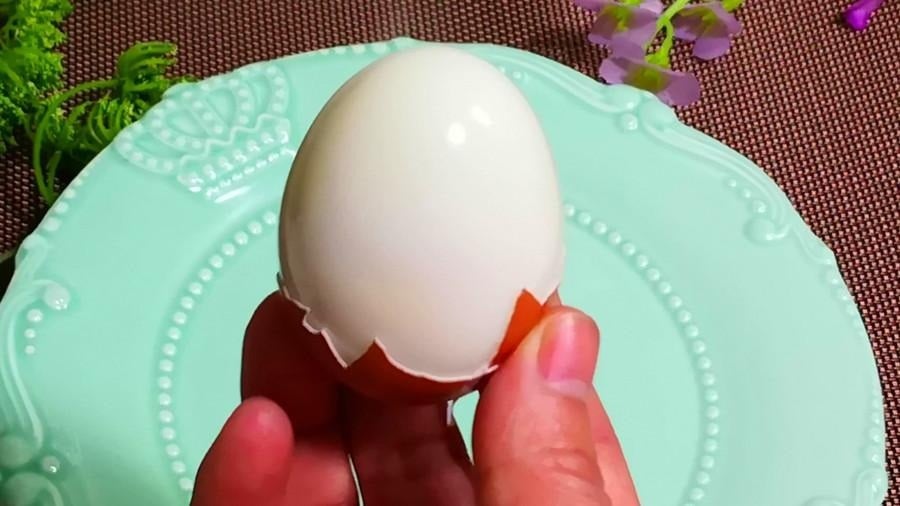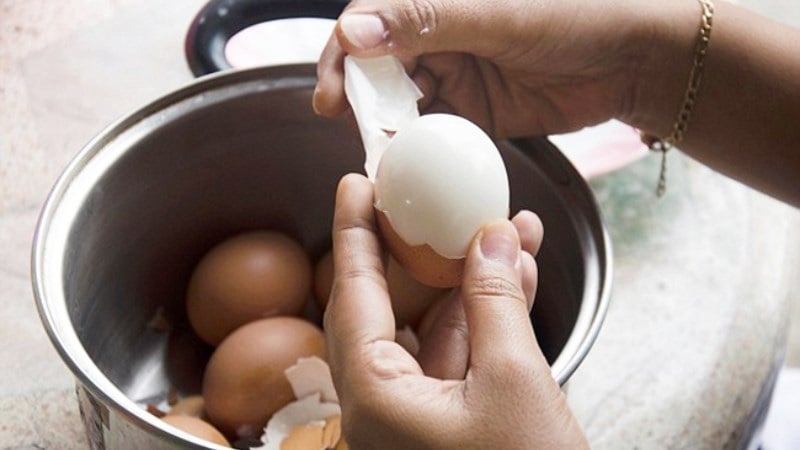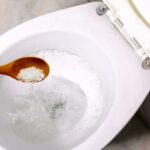Eggs, whether chicken, duck, or quail, are a staple food in many households. However, not everyone knows the trick to boiling them just right, with a soft yolk and tender whites, while also making them easy to peel.
Why Adding Salt Enhances the Taste of Boiled Eggs?
-
Salt raises the boiling point of water: When salt is added, the water reaches a higher stable temperature, cooking the eggs evenly from the inside out. This ensures that the yolk remains soft and doesn’t become dry and crumbly.
-
Salt makes the shell easier to peel: Ions in salt reduce the adhesion between the membrane and the eggshell, making it effortless to peel without breaking the whites.
-
Salt eliminates any unpleasant odor: Boiled duck eggs tend to have a strong smell, but adding salt reduces this, making the eggs more palatable and enjoyable.

How to Boil Eggs with Soft, Fragrant, and Buttery Yolks Using Salt
Preparation
-
Chicken or duck eggs of your choice (opt for fresh eggs with intact shells)
-
2 large salt crystals (or ½ teaspoon of salt crystals)
-
A small pot, ensuring the eggs don’t stack on top of each other
Instructions
-
Soak the eggs before boiling: Soak the eggs in warm water for about 5 minutes to remove any dirt and reduce thermal shock, minimizing the chances of cracking.
-
Boil the water: Add water to just above the level of the eggs and drop in the 2 salt crystals. Turn on the heat and bring the water to a boil.
-
Add the eggs: Once the water starts boiling, gently lower the eggs into the pot and reduce the heat to maintain a gentle boil. This prevents the shells from cracking.
-
Time it right:
-
6-7 minutes: For soft-boiled eggs with runny yolks that are buttery.
-
8-9 minutes: For slightly firmer yolks that are still soft and not dry.
-
Over 10 minutes: For fully cooked eggs suitable for stir-frying or braising.
-
-
Cool in ice water: After removing the eggs from the pot, immediately immerse them in a bowl of ice-cold water with a few ice cubes. This will make the shells detach quickly and easily.
Benefits of Eating Soft-Boiled Eggs Prepared This Way
-
Nutrition preservation: Soft-boiled eggs prepared this way retain more vitamins A, D, E, and minerals compared to overcooked hard-boiled eggs.
-
Eye and brain health: The yolks contain choline and lutein, which support memory and protect eye health.
-
Better digestion: Soft-boiled eggs are easier to digest and less likely to cause stomach discomfort compared to overcooked hard-boiled eggs.

Important Notes
-
Limit egg consumption to 2 per day to avoid excessive cholesterol intake.
-
Individuals with high cholesterol, heart disease, or other related conditions should eat fully cooked eggs instead of soft-boiled.
This simple trick of adding 2 salt crystals to the boiling water results in perfectly boiled eggs with easy-to-peel shells and delicious, soft, buttery yolks. It’s a traditional technique passed down through generations, ensuring tasty and nutritious meals for the whole family.
Why Sprinkle Salt in the Toilet Bowl?
“Many people opt for powerful toilet cleaners without realizing the potential harm they can cause to the enamel. A better and safer alternative is salt, which is highly effective at cleaning toilet bowls without causing any damage. Say goodbye to harsh chemicals and hello to a sparkling clean bathroom with this natural solution!”














